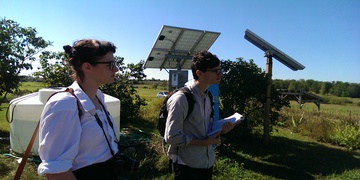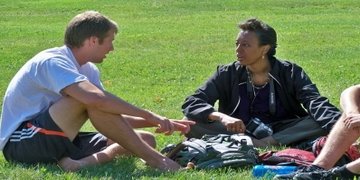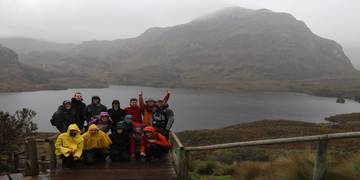UVM’s Department of Geography and Geosciences is centered on educating the geographers and geoscientists of tomorrow to interpret and tackle 21st century challenges facing our planet and its population, such as climate change, migration and refugees, water resources, and environmental health. We do this through engaged teaching, world-class faculty research, challenging field, and lab work, rewarding internship opportunities, community-focused service learning, sustainability education, and access to high-caliber professional networks. We strive to make our department accessible to all learners and are committed to diversity, equity, and inclusion both inside and outside our classrooms.
When you study geography or geosciences in UVM’s College of Arts and Sciences, you receive a unique, potent combination of the personal attention and hands-on, experiential learning of a small liberal arts college paired with the wide-ranging opportunities and experience that come from studying at a top research institution. You’ll graduate with the knowledge and skills you need to begin a rewarding career and make a real difference in the future of our communities and the planet.












